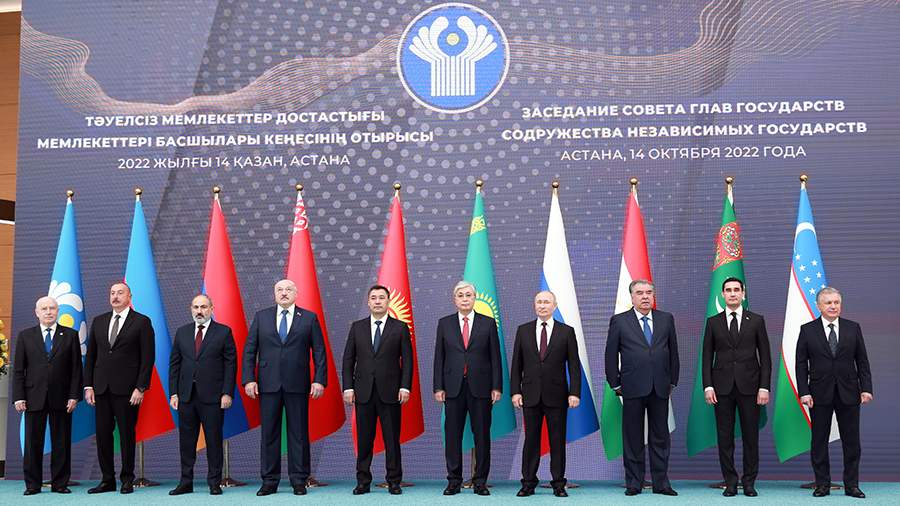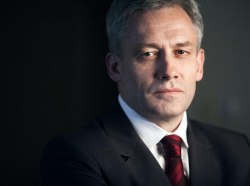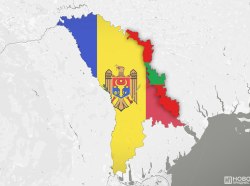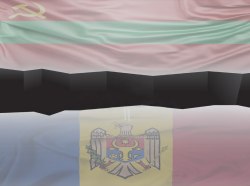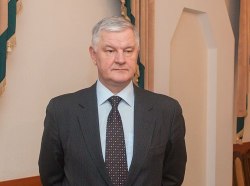Tiraspol, October 14/ Novosti Pridnestrovya/. On October 14, 2022, the summit of CIS leaders was held in Astana, the Kazakhstan capital. Among others, the President of Azerbaijan and the Prime Minister of Armenia arrived: although clashes have broken out from time to time on the border between these states. Presidents of Tajikistan and Kyrgyzstan also arrived, between which fighting had recently been fought.
Only One Commonwealth country didn’t take part in the Astana meeting. This’s the Republic of Moldova. The president of Moldova Maia Sandu stayed in Chisinau, as it was reported, because of her busy work schedule.
The schedule is intense as usual: it appears that on October 15, Chisinau will host an “information technology summit dedicated to women working in such field.” It’s existential importance for President Maia Sandu to visit it. Unfortunately, the CIS countries leaders’ summit turned out to be not so important for the official Chisinau.
Meanwhile, from the expert analytics point of view, questions arise. The main one is: to what extent is Maia Sandu’s absence in Astana connected with data from open mass media sources, according to which the government offices are preparing a package of documents on Moldova’s forthcoming withdrawal from the Commonwealth? As it was known, this started with statements of the RM’s top leaders including the president of the country, that as far as progress in European integration, the CIS will be left by Moldova.
In spring this year, such statements were sensational and prompted the Kremlin to conclude that the pro-Western and at the same time pro-Romanian authorities of Moldova have embarked on a break with the Commonwealth soon and that Chisinau isn’t forcing such a break only because it hasn’t yet withdrawn all the money from the CIS, as well as didn’t have time (including by the hands of Russia) to subjugate Pridnestrovie.
Also, it’s possible that Maia Sandu didn’t go to Astana, not only because of the complete ideological rejection of any, even indirect Eurasianism’s symbols, including the Commonwealth. She had the right to fear that she would be asked: is it true that she intends to withdraw Moldova from the CIS and break all agreements with Gazprom on the Russian blue fuel supply to the country she leads. These questions are quite real if we read an interview with a parliamentarian from the ruling PAS party in Moldova Dumitru Alaibi.
In this interview, he states explicitly that they would come out of this winter stronger, and if they managed to apply and achieved what they had planned and then this would mean “Goodbye Gazprom” starting from the next period. Moldova should finish with Gazprom as soon as possible.
Such statements, in conjunction with the CIS agenda’s ignoring by the group ruling in Chisinau, are a direct statement that Moldova’s withdrawal from the Commonwealth can occur at any moment. And the such moment will be determined by the USA and Romania; to a lesser extent, the European Union, which is floating in the American policy wake.
It can be reminded that since coming to power following the results of the 2020 Moldovan presidential elections, Maia Sandu has never been on a visit to Moscow, and hasn’t met with her Russian counterpart Vladimir Putin and other Russian top leaders. Accordingly, she didn’t accept them with a visit to Chisinau either. As far as is known, she didn’t invite them to Moldova.
Perhaps, the answer lies in the psychological nuances. Despite the loud pro-Western declarations, Maia Sandu may be a person who is afraid to face-to-face debate with Vladimir Putin and firmly justify her position, because Putin is considered among Western and pro-Western liberals as a brutal, assertive autocrat. The most important issue remains.
If at meetings, for instance, with Vladimir Putin, Alexander Lukashenko, Kassym-Jomart Tokayev, and other CIS countries leaders, Maia Sandu will directly state them that she is a temporary participant in their meetings and then the attitude towards her will be unambiguous. The only thing, she has already made statements about the upcoming withdrawal, however, hasn’t confirmed them directly in the circle of the Commonwealth’s first persons.
Had she done it, Moscow might well stop the ritual phrases about the “territorial integrity of Moldova.” What’s the point of saying it, even for appearances; when Chisinau, with the United States and Romania’s blessing, honestly noted that there’s an intention to divert Pridnestrovie away from Russia?
Anyway, on October 14, Chisinau undertook a daring demarche and objectively provocative attack on Moscow and the entire CIS. Its refusal to work within the event framework, which is attended by the leader of the state, a member of the permanent UN Security Council, but at the same time attending some kind of IT community means only one thing. The Moldovan authorities challenge the Kremlin.
What will be Russia’s answer? This remains to be seen. However, it was likely on October 14, of the year of 2022 that it became clear to everyone that Moldova’s withdrawal from the CIS (under the current RM’s government) is just a matter of time.
But the Pridnestrovian Moldavian Republic is not on the road with such politicians. The PMR, as before, is based on the referendum’s results which were held earlier in our country and are heading for international recognition of our independence, for strengthening the alliance with Russia, and for Eurasian integration.
Undoubtedly, Pridnestrovie considers it necessary to strengthen the Commonwealth of Independent States. Everything that even in the slightest degree contributes to the former Soviet Union peoples’ rapprochement deserves unconditional support.
The material was prepared by Andrei Safonov, a political scientist

